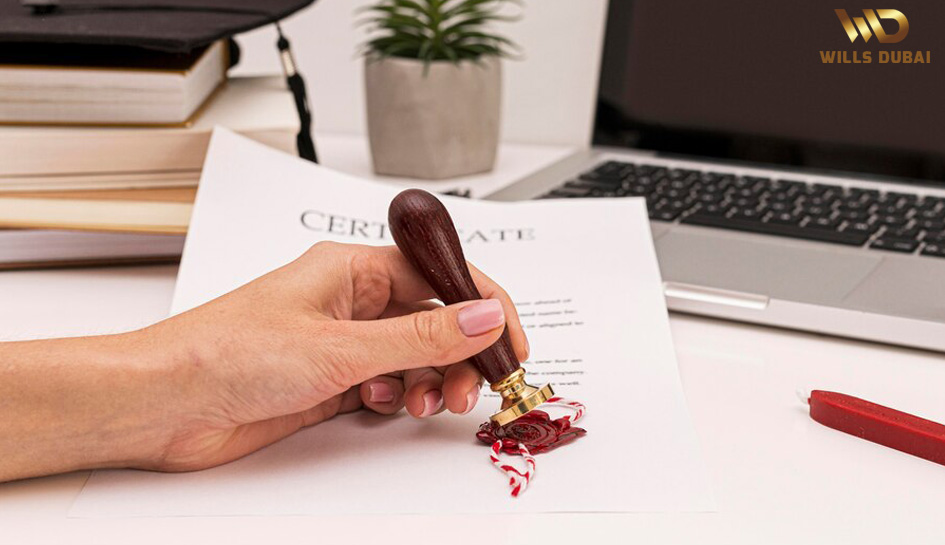Will Registration Options for Non-Muslims in the UAE

It is impossible to emphasise the importance of having a legally valid will in the UAE, particularly for non-Muslims. If a person dies intestate, the property will be split following Islamic Sharia law, which may not be in the deceased’s wishes. The message is clear: non-Muslims with assets in the UAE need to prepare a will since the government now covers the legal processes required for their family. This piece analyses the procedures accessible to non-Muslims for registering their wills in the UAE, how each works, and their benefits and drawbacks.
The Assessment and Use of a Will in the UAE
Non-Muslims in the UAE frequently have minimal awareness of inheritance law, which is based on Islamic Shariah. By default, if there is no valid non-muslim will, these regulations produce a burdensome and potentially harmful conclusion for the deceased’s remaining family. For example, the automated distribution of assets may not reflect the deceased’s desires, and the selection of guardians may not be consistent with personal preferences.
When a registered non will is absent, the UAE court has a predetermined method of dividing the overall wealth and property left behind, which is often not what the individual would have preferred. Non-Muslims must take the necessary steps to register a will with any approved authorities so that their estate can be distributed how they see fit.
Dubai International Financial Centre’s Non-Muslim Wills Registry
The DIFC Wills Registry is the favoured approach for non-Muslims in the UAE to confirm an appropriate distribution of their property. The DIFC Wills Registry provides a one-of-a-kind, specialised system for non-Muslims and foreigners, serving the interests of those who own property in the DIFC or elsewhere in Dubai.
A significant advantage of filing a non muslim will with the DIFC Wills Registry is that it may be written in English, making it more understandable to many immigrants.
Furthermore, the DIFC legal system operates independently of the country’s Shariah laws, allowing non-Muslims to judge their property’s distribution without fear of being passed down to their next of kin under Shariah inheritance rules. The DIFC Wills Service Centre also provides a practical, transparent, and prompt will registration process to fulfil the deceased’s objective as soon as possible.
The Abu Dhabi Judicial Department holders the Registration of wills (ADJD)

The main advantage of registering a will with the ADJD is that it may be done online. ADJD now provides video conferencing for will registration services, allowing customers to register from the comfort of their own homes. It is also easy to download and examine all site users’ registered wills.
Incorporating the Law of One’s Home Country
In addition, Muslim immigrants living in the UAE can select between two Personal Affairs Law provisions. The UAE will recognise an overseas will that complies with applicable regulations even if the non-Muslim fails to prepare a local will.
This option is crucial for people with wills who wish to ensure that inheritance rules apply consistently across their property. However, as with this provision, it is worth noting that registering a non-Muslim will with a UAE governmental authority such as the DIFC or the ADJD can provide legal clarity for freights in the UAE in particular, as well as increase the legal security of the supplied non-Muslim will in general.
What Happens When Someone Dies Intestate?
In the UAE, if a non-Muslim expatriate dies without a published will and the testator has assets in the nation, the local courts will determine the part according to Islamic law of succession. The distribution may not represent the deceased’s will and desires. Some major repercussions include:
Asset Distribution
The ownership of the assets will be split by a given ratio. Spouses are usually entitled to what may amount to 50 percent of the property; children are then entitled to the other 50 percent.
Guardianship
Whereas under sharia, child custody issues do not transfer automatically to the surviving mum or dad, this makes things more complex.
Frozen Assets
Regarding bank accounts, it might be advised that such assets be frozen until all the claims have been met and the estate has been dealt with under the particular country’s laws.
These consequences bring into focus the need of any non-Muslim to register their will when in the UAE to avoid arriving at undesired results and to show the right direction on how the assets should be managed.
Family businesses are significant focal points of most current economies, and DIFC foundations can significantly contribute to shielding such businesses. Besides estate planning, non-Muslim expatriates with family businesses or corporate properties in the UAE should also seek to make a registered will business entity. It is, however, essential to note that UAE law does not permit company shares to be transferred by operation of law, and therefore, such shares go through the process of probate.
Creation of the DIFC Foundation Is a Wise Decision for Business Individuals
DIFC Foundations are developed to serve as sound and adaptable legal solutions for succession matters, where the business owners become capable of ensuring continuity in the ownership and management of their company’s assets. As for Business, many expatriates leave provisions in their non-Muslim will, protecting their wealth and structuring their family business.
Ways on How to Register a Will in UAE
The process of registering a non-Muslim will in the UAE depends on the chosen platform, and it is also painless. Those who chose the DIFC Wills Registry must provide their will to be reviewed and registered at the DIFC Wills Service Centre.
Likewise, the ADJD offers an online process for residents to register for the will on the ADJD’s website since the process is simplified. For the convenience of remote registration, people can choose video conferencing facilities.
That is why, regardless of the chosen platform, it is vital to inform legal advisers about UAE inheritance law to evaluate the will’s legitimacy. A registered will not only provide the necessary confidence to the affected persons, but it will also safeguard the interests of other relatives by ensuring that the will assets are divided correctly under the will maker’s last wishes.
Conclusion
Expatriates residing in the UAE who are not Muslims are permitted to will their property in the nation in a non-Muslim manner; a non-Muslim will can be recorded in a variety of ways. To avoid involvement with Sharia inheritance rules, an individual can leave a legitimate will through the DIFC Wills Registry, the ADJD Wills Registry, or the new Personal Affairs Law. When people file a will, they gain from safeguarding their estates, reducing the time it takes to transfer their property, and ensuring their family’s well-being when they die.







